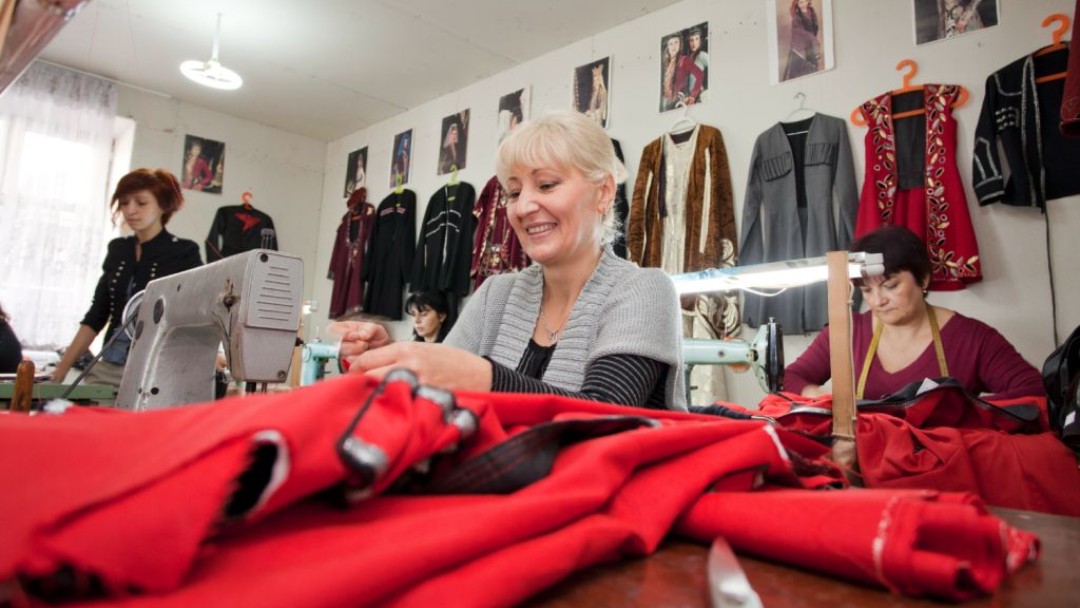News from 2015-08-24 / KfW Development Bank
Deutsche Bank adds funding to EFSE
Long-term financing for small businesses in South-East Europe
In many countries, small and medium-sized enterprises (SMEs) account for 95 % of all companies and often generate more than half of the gross national product. However, especially in developing countries and emerging markets these companies find it difficult to raise external capital for investments. For this reason, the European Fund for Southeast Europe (EFSE) was founded in 2005 as an initiative of KfW Development Bank on behalf of the Federal Ministry for Economic Cooperation and Development (BMZ). EFSE's objective is to improve access to long-term financing for micro enterprises and SMEs as well as private households in the areas of housing (housing purchases and modernisation) in East and Southeast Europe.
With the placement of two debt tranches, Deutsche Bank managed to generate additional financing for the fund today. The bank, which also acted as underwriter for the transactions, managed to raise a total of EUR 90 million from private institutional investors for the fund in the form of two and three-year tranches. In total, Deutsche Bank has thus mobilised private funds for EFSE in the amount of approximately EUR 250 million on the capital market and from own funds since 2007. The current fund capital amounts to roughly EUR 1.05 billion.
EFSE, which is registered in Luxembourg, is one of the largest micro finance funds in the world and is based on a public-private partnership involving not only the state sector and private institutional investors but also international financial institutions. It makes long-term investments in partner institutions in 16 countries in South-East Europe and those in the EU neighbourhood region in the East. The EFSE funds are used to grant individual loans to smaller and medium-sized enterprises up to a maximum loan sum of EUR 100,000.
The fund is currently granting long-term financing for designated purposes as well as technical support and advisory services to 74 regional and trans-regional partner institutions (e.g. local banks and micro finance institutions). Since the fund was launched, a total of 630,312 loans were granted to SMEs with a total volume of approximately EUR 4.4 billion. These funds are to create up to 460,000 new jobs. The fund will only grant financing (for designated purposes) to such partner institutions as boast both solid financial figures and a transparent organisational structure, and they must also comply with the ethical and governance rules of EFSE.
Blueprint for further PPP initiatives of KfW
As a public-private partnership (PPP), EFSE is a model for similar co-initiatives of KfW. While 33 % of the fund capital is contributed by the public sector (governments and supranational institutions), private investors contribute a considerable share of 66 % to fund capital via the capital market, which means that borrowers are generally granted comprehensive access to long-term financing at market conditions.
"With the latest successful placement of EUR 90 million, Deutsche Bank is underlining its role as long-term strategic partner of EFSE. At the same time, the investment also reflects EFSE's excellent performance and governance structure. Substantial amounts of private capital can thus be mobilised, even in regions that are affected by economic and political crises," says Monika Beck, Chairman of the Board at EFSE.
Based on EFSE, further similar PPP initiatives have been initiated by KfW. These include the globally oriented Micro Finance Enhancement Facility, the Micro Finance Fund for North Africa & Middle East SANADas well as the Green for Growth Fund that supports energy efficiency projects.
Further information


Share page
To share the content of this page with your network, click on one of the icons below.
Note on data protection: When you share content, your personal data is transferred to the selected network.
Data protection
Alternatively, you can also copy the short link: https://www.kfw-entwicklungsbank.de/s/enzBWrMC.BIaA
Copy link Link copied